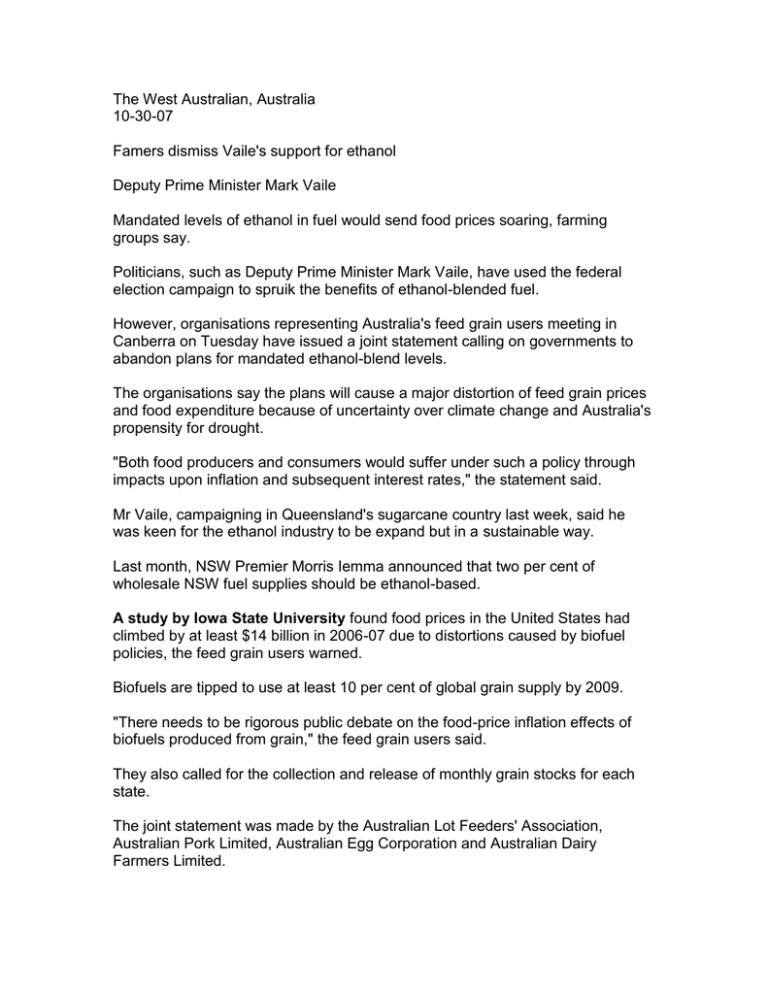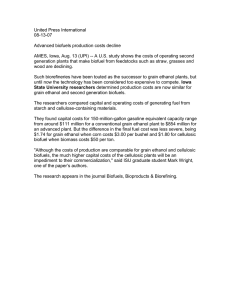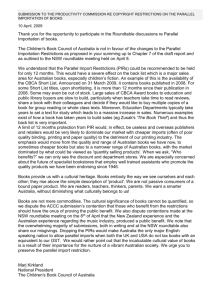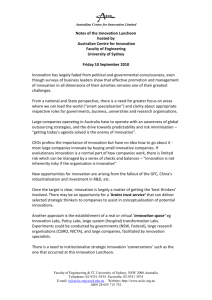The West Australian, Australia 10-30-07 Famers dismiss Vaile's support for ethanol
advertisement

The West Australian, Australia 10-30-07 Famers dismiss Vaile's support for ethanol Deputy Prime Minister Mark Vaile Mandated levels of ethanol in fuel would send food prices soaring, farming groups say. Politicians, such as Deputy Prime Minister Mark Vaile, have used the federal election campaign to spruik the benefits of ethanol-blended fuel. However, organisations representing Australia's feed grain users meeting in Canberra on Tuesday have issued a joint statement calling on governments to abandon plans for mandated ethanol-blend levels. The organisations say the plans will cause a major distortion of feed grain prices and food expenditure because of uncertainty over climate change and Australia's propensity for drought. "Both food producers and consumers would suffer under such a policy through impacts upon inflation and subsequent interest rates," the statement said. Mr Vaile, campaigning in Queensland's sugarcane country last week, said he was keen for the ethanol industry to be expand but in a sustainable way. Last month, NSW Premier Morris Iemma announced that two per cent of wholesale NSW fuel supplies should be ethanol-based. A study by Iowa State University found food prices in the United States had climbed by at least $14 billion in 2006-07 due to distortions caused by biofuel policies, the feed grain users warned. Biofuels are tipped to use at least 10 per cent of global grain supply by 2009. "There needs to be rigorous public debate on the food-price inflation effects of biofuels produced from grain," the feed grain users said. They also called for the collection and release of monthly grain stocks for each state. The joint statement was made by the Australian Lot Feeders' Association, Australian Pork Limited, Australian Egg Corporation and Australian Dairy Farmers Limited. Earlier, the Australian Bureau of Agricultural and Resource Economics (ABARE) revised down its winter crop forecast for the coming harvest season. The winter wheat crop output is now forecast to be 12.1 million tonnes compared to the previous estimate of 15.5 million tonnes. ABARE said that with the exception of Queensland, pockets of northern NSW and southern Western Australia, rainfall during the critical September-October period had been below to very-much-below average throughout the grains belt. NSW has been particularly dry, with many regions recording their lowest September-October rainfall on record.




